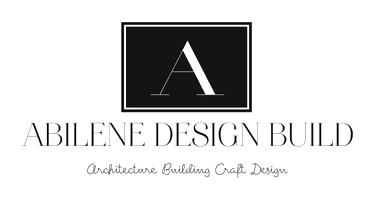Frequently Asked Questions
Your Guide to Home Building & Renovation in Sellersburg, Clarksville, and Surrounding Areas
General Questions about Home Construction & Remodeling
Q: What's the difference between a custom home builder and a general contractor? A custom home builder specializes in designing and constructing homes tailored to a client's specific vision, often from the ground up. They typically handle everything from architectural design to material selection and final construction. A general contractor oversees a wider range of construction projects, including new home builds, additions, and remodels. They coordinate subcontractors, manage budgets, and ensure the project stays on schedule. For a custom home, you'll likely work closely with a custom home builder or a general contractor with extensive custom home experience.
Q: How long does it typically take to build a new home or complete a major remodel? New home construction typically takes 6 to 12 months from start to finish, including design, planning, and actual construction. Custom homes may take 10-12 months. Major remodels or additions can take several weeks to many months, depending on the scope. Factors like weather, material availability, and project complexity can influence the timeline.
Q: Do I need permits for my home construction or remodeling project? Yes, nearly all new construction and significant renovations to existing residences require permits from the local building department (e.g., Clark County Planning & Zoning Office or relevant city/town departments). Additional permits may be needed for septic systems, driveways, or work within the right-of-way. Always confirm permit requirements with your local authorities before starting any work. Your contractor should handle obtaining necessary permits.
Custom Home Building & New Home Construction
Q: Can I build on my own land, or do you only build in specific communities? Many custom home builders and general contractors in Southern Indiana offer "build-on-your-lot" services. They can often evaluate your land for suitability before planning your custom home. Some builders also have their own curated communities with pre-designed floor plans.
Q: What kind of deposit is required for new home construction? Deposits can vary significantly based on the builder, type of home, financing, and upgrades. A common average for new homes is around 10% of the total cost. For "ground up builds" or heavily customized homes, a non-refundable deposit may be required, sometimes starting at $10,000 or more, especially if upgrades exceed that amount.
Q: Can I customize the floor plan or make changes during construction? For custom homes, flexibility in floor plan customization is a key benefit. Most builders work with you during the design and contract phases to finalize specifications. While significant changes after construction begins may incur "change order" fees and delays, reputable builders will have a clear process for handling such requests.
Q: Do new homes come with a warranty? Yes, most new homes come with a home warranty (e.g., an RWC Home Warranty) that covers various components for a specified period. This warranty usually transfers to a new owner if you sell your home.
Q: What energy-efficient features are common in new home construction? Modern builders often incorporate features like high-PSI concrete foundations, open-cell spray foam insulation, professionally sized high-efficiency HVAC systems, and Thermopane windows to enhance comfort and energy efficiency.
Home Remodeling & Additions
Q: Why should I hire a contractor for my remodeling or addition project instead of doing it myself? While DIY is an option for some, hiring an experienced remodeling contractor often saves time, money, and frustration. They have the expertise to plan, execute, and finish the project efficiently, handle permits and inspections, and navigate unforeseen challenges. They also have established relationships with trusted subcontractors.
Q: What value does a home addition or remodel add to my property? The value added depends on the type of renovation, quality of workmanship, and materials. While some remodels increase resale value, others may primarily enhance your quality of living if you plan to stay in the home long-term. Consult with contractors and real estate agents to determine which projects offer the best return on investment for your specific goals.
Q: Can I remodel my kitchen or bathroom during the colder months? Yes, indoor remodeling projects like kitchen or bathroom renovations are generally unaffected by weather, making colder months a good time to undertake them. Contractors' schedules may even be more flexible during these periods.
Home Design Services & Residential Architectural Design
Q: When should I hire an interior designer or residential architect? It's often beneficial to involve an interior designer or architect early in the process, especially for new construction or major remodels. They can help you define your vision, create functional layouts, select finishes and materials, and ensure the design aligns with your lifestyle and budget. For projects requiring structural changes or specific code compliance, a residential architect is essential.
Q: How do home design services charge? Home design services can charge in various ways, including by the hour, a flat fee for the project, or a percentage of the total project cost. Discuss the fee structure during your initial consultation.
Q: Can a designer incorporate my existing furniture or accessories into the new design? Absolutely! Experienced designers can help you decide which existing pieces will work well in your new space and integrate them into the overall design plan.

